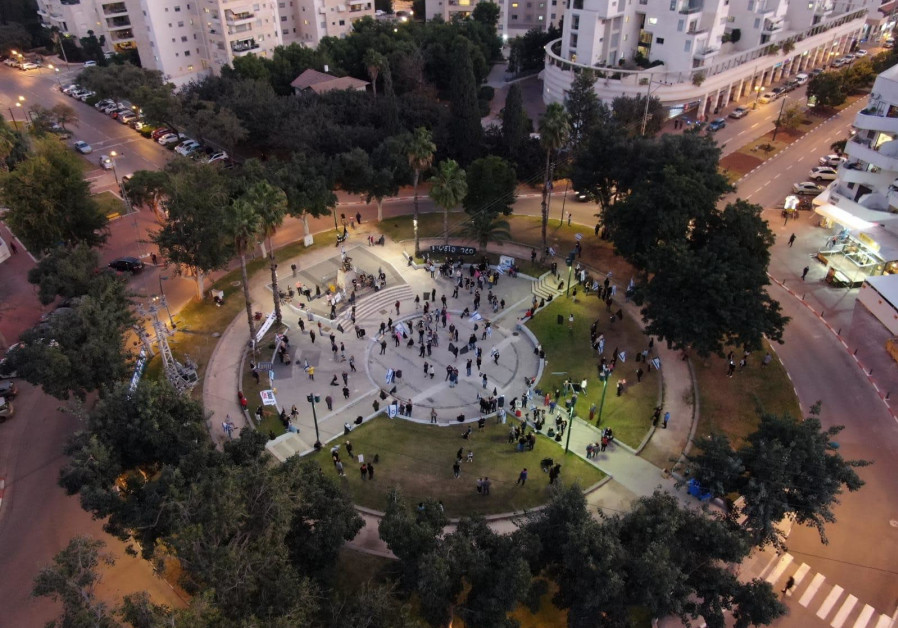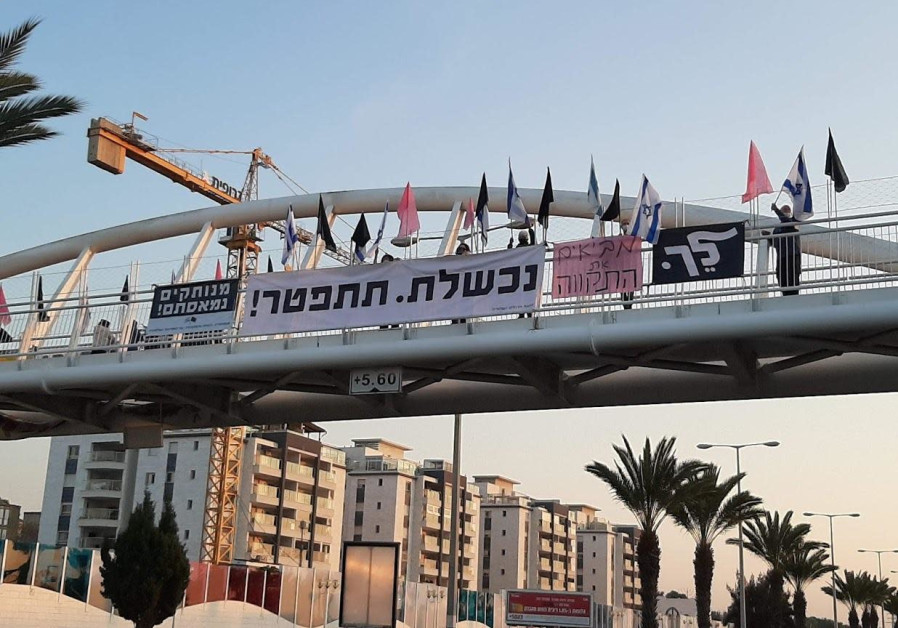Protesters making their way to Jerusalem for the weekly protests against Prime Minister Benjamin Netanyahu on Saturday were reportedly stopped by police and prevented from entering the city, The Jerusalem Post's sister publication Maariv reported.
Making their way to the weekly Balfour Street protests, they were stopped by police at the entrance to Jerusalem and reportedly told that they were only allowed to start protesting at 5:30 p.m.
"It is unfortunate that instead of protecting the protesters, the Israel Police has become a political tool in Netanyahu's hands, used to oppress the right to protest and Israeli democracy," a statement by the Kumi Israel (Rise Israel) Movement read. Labor MK Merav Michaeli, who participated in the car envoy making its way to Jerusalem, addressed what she hinted was an attempt by police to block roads and prevent people from reaching the area that has become symbolic for anti-Netanyahu protests in recent months. "All roads to Balfour are blocked. They won't succeed," MK Michaeli tweeted.

כל הדרכים חסומות לבלפור. לא יעזור להם. pic.twitter.com/52fhB7Ya6i
— Merav Michaeli מרב מיכאלי (@MeravMichaeli) January 9, 2021
Preparing for the 29th consecutive week of the nationwide protests against Netanyahu, Kumi Israel pointed out the recent events that unfolded at the US Capitol and their relevance in the Israeli context.
"The painful images from the US must be considered a clear warning sign for the price of incitement, populism and a cult of the leader," the movement noted.The movement's comments reflect the findings of a recent poll indicating that the majority of Israelis (56%) believe that an incident similar to the storming of Capitol Hill by masses of protesters in Washington could take place in Israel.Saturday's protests come one day after a report indicated that Netanyahu and his family were taken to a safe room last Saturday after protesters allegedly broke through one of the barriers placed to defend the Prime Minister’s Residence. The report was slammed by the organizations leading the protests, as well as by a senior police official, who told N12 on Saturday that there was no real justification to move Netanyahu and his family to a safe location, as the Prime Minister's official residence "did not face risk of being breached at any point" and that "protesters didn't break through any barrier" but simply failed to follow instructions.


קיסריה-
— Noa Shpigel (@NoaShpigel) January 9, 2021
גם השבוע,הצעדה מגיעה מכיכר מוזיאון הראלי לכניסה לרחוב בו מעונו הפרטי של ראש הממשלה.נראה שהסגר גרם ליותר אנשים מהרגיל לצאת מהבית- pic.twitter.com/res5iRmMXH
On Friday, it was reported that notable figures from organizations that have been organizing the protests against Netanyahu in recent months have announced that they will be running for Knesset in the upcoming round of elections in March, as part of their new party called The Democratic Party, or more fully, "The Democratic - Liberty, Equality and Solidarity." A spokesperson of the party has said that it will be presenting its list of candidates to the Knesset during Saturday's protests near the Prime Minister's Balfour Street residence.
"Starting tomorrow [Saturday] - the social upheaval becomes a political force," a statement by the party read.
"The party will start the process of amending democracy in Israel from the inside and will set an example for how a democracy should work, based on fundamental values of liberty, equality and solidarity," party founder Weizmann Institute Prof. Ehud Shapiro said during the party's launch on Saturday.
